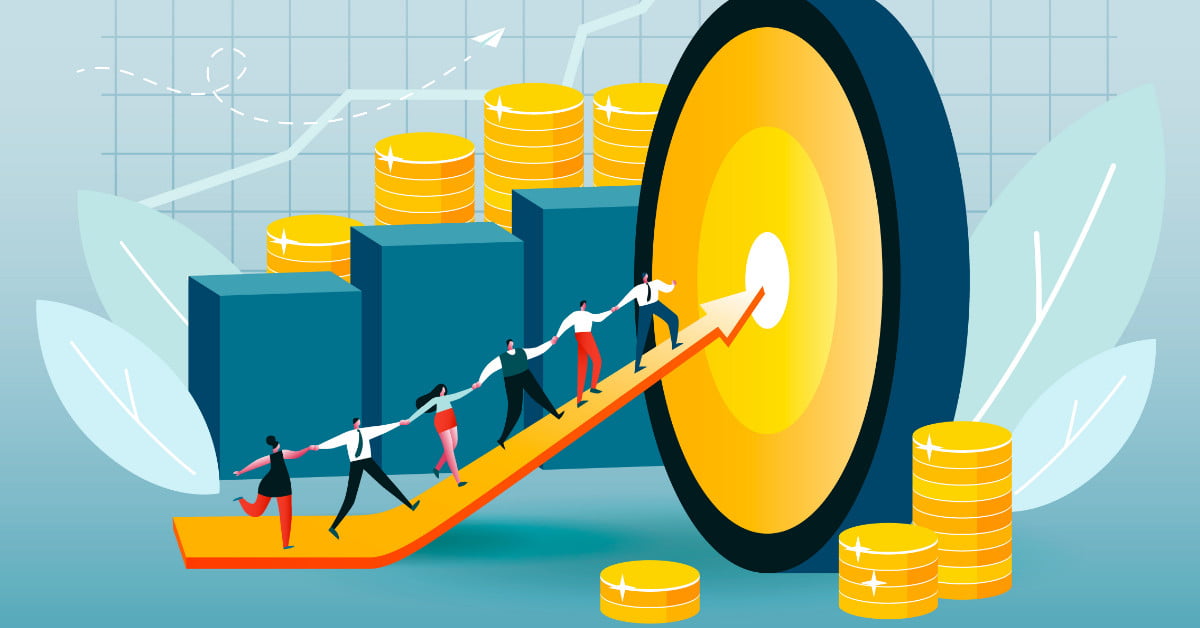Right now, a lot of Kiwi businesses are feeling them impact of COVID-19 in New Zealand. Some of our favourite and long-standing companies have been forced to close their doors, people have been made redundant, and sales have some to a complete standstill.
So the big question on the minds of businesses, is how do we continue to make sales and close deals in a time of crisis like the one we're currently in?
In some cases (like the tourism industry, for example), where too many things need to happen before we're back to business as usual, this wont be the case for a while yet.
But actually, what we're finding in many B2B cases, where the average sales cycle is around 6-9 months, is that right now is just a blip.
It's the perfect time to start nurturing those top of the funnel customers, creating content that they want and need, and adding value wherever possible, so that when we do inevitably resurface, you're in a good position.
But most importantly of all, the secret to doing this really well is actually quite straight-forward: be as empathetic as possible and nurture those human experiences and connections.
We're all going through this together, and that same feeling of togetherness and understanding is what everyone should be offering to their customers right now. Here's how I'd recommend approaching it.
Re-think How You're Using NPS and Lead Scoring
NPS (or net promoter scores) have long been used in the world of service and sales as a customer satisfaction benchmark that measures how likely your customers are to recommend your business to a friend. It allows a snapshot of your customers sentiment towards your business, and alerts you when they might need a little more attention.
The best part about net promoter scores, is that they're really easy to calculate and integrate into your CRM (if you haven't got a CRM or set up your NPS, we can help with that). Simply ask your customers, "On a scale of 0 to 10, how likely are you to recommend us to a friend?", and then categorise respondents according to their score:
Scores 0-6 are Detractors / 7-8 are Passives / 9-10 are Promoters
Sounds simple enough right?
Most companies tend to put a bit of time into nurturing customers who's scores drop beneath 6 and become detractors, and it makes sense too. Why? A bunch of people at a BBQ are simply more likely to stand around chatting about their bad experiences with a company or team, than their good ones - three times more likely, in fact.
We like to complain. Which means it's really important to respond as urgently as possible, say sorry for the areas where you've let your customer down, and fix the problem.
Basically, lift your game there and then, and don't ignore it. Customer problems can be like an infection - they fester and get worse, which in the long run means a lot of negative BBQ chats for your business.
The good news on the other side of effectively turning around a detracting NPS, is that people also love to spin a yarn about companies that have pleasantly surprised them. If you're the company that took their problem, acknowledged it and said "hey, you told us to do this - so we did it!", your critics will quickly become your evangelists.
The piece of the NPS puzzle that I see a lot of businesses missing - and a piece that has never been so relevant than during the COVID-19 crisis - is the positive NPS scores. These are the people who have long loved your service and are your biggest fans. A lot of companies see a 9-10 score and think, "okay, they're all good, I'll leave them and focus on the bad ones", but what I'd say is to make sure you're taking the time and thank your best customers for taking the time to leave that good review.
Spend a little extra time with those 9-10 scorers to make them feel valued. Say something nice, ask if you can be of further help, or even if they know someone who might also benefit from your service. At the end of the day, your promoters will become your referrers, which will be invaluable when it comes to re-launching or competing once the COVID-19 lockdown is over.
Shift Your Focus from Closing to Empathy
We're all people, and we're all a community in NZ struggling through the same challenges. One thing that's really struck me across the board since COVID-19 is this overwhelming display of kindness and understanding of one another.
From my direct neighbours having a chat with me over the fence (albeit, difficult to hear from 5m away) whom a week ago didn't give me the time of day, to all of the B2B sectors banding together to help mitigate the economical challenges we're facing. I've seen banks advancing credit for businesses, HubSpot offering discounts and paying out commission in advance, and our own team at Hype & Dexter completely pivot to offer extended terms and adapt to our customers' needs.
That's exactly how you should be selling right now - with empathy. In fact, it's not really selling at all. It's asking someone how they're going, and where you can be of help.
When you pick up the phone to call someone during a time like this, you never know what the person on the other end of the call is going through. They could be making budget cuts, going through a day of making team members redundant, or figuring out how they're going to adapt to their own client needs themselves. It's a stressful time right now, and that's why as a consultant of any type, it's our job to ask the question "how are you?", before anything else.
A good example would be a recent client of ours who let me know that their customers were becoming more and more interested in podcasts while they're working from home, and that they were keen to get one going. All I had to do was design a product that helped them achieve that goal and take the heavy lifting off their hands, and I knew that through asking the right questions.
Figure out how their budget is changing, what they're doing to better serve their clientele and if there's anything you can be doing to take that weight of their shoulders. Now isn't the time to close deals (unless they're truly at that stage, ready to go), it's the time to be empathetic and helpful to one another.
That way at the end of this, you're not the person who tried to sell to them when they were the most stressed, you're the person who positive and helped them to figure out their next move and execute it.
That's how you build trust and a strong relationship.
Add Value, Add Value, Add Value
The truth of the matter is that people probably aren't at the bottom of the funnel right now making buying decisions - so don't treat them like they are. Treat them as a human and with integrity, and acknowledge that they are more than likely at the top of the funnel.
What people tend to want right now, is valuable content. We're all sitting at home on our laptops and devices, scrolling through feeds and looking for information that triggers the buyers journey.
This is particularly important to know if you're a business that can't transact right now. Maybe your customers aren't ready to reach into their pockets and buy that new product, and maybe you're not open to make the sale - but you do have that free time to offer something that'll get your customers thinking about you.
Use this valuable downtime to tidy up your back of house:
- Clean up and streamline your website
- Tidy your databases, get rid of duplicates and disengaged contacts
- Segment your audiences better
- Consider how you're looking after your internal team
- Create content that truly adds value to your customers, without trying to sell to them
Basically, grease the wheels of your business so that when the green flag drops, you're ready to roll.
There are some pretty awesome examples of businesses out there who have stopped their BAU completely to give their customers exactly what they need right now (did you see those breweries making hand sanitiser instead of alcohol?!). It doesn't have to be too difficult either, if your marketing is usually selling your product, now's the time to pause that and make a piece of content that your customers can interact with now (Alex touched on this in his recent blog if you're keen to check it out).
That way, when you're ready to sell again, you have a 360 degree view of your customer; their pain-points, their needs, and they'll be ready to buy from you again too.
Have a Few Pain-Points You'd Like to Iron Out?
Let's have a chat. I'm more than happy to have a spit-balling session and chat around some of the issues you might be facing in business off the back of COVID-19. Just click the link below!

-1-1.png)




Comments